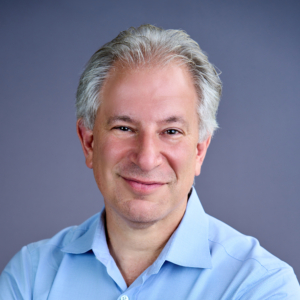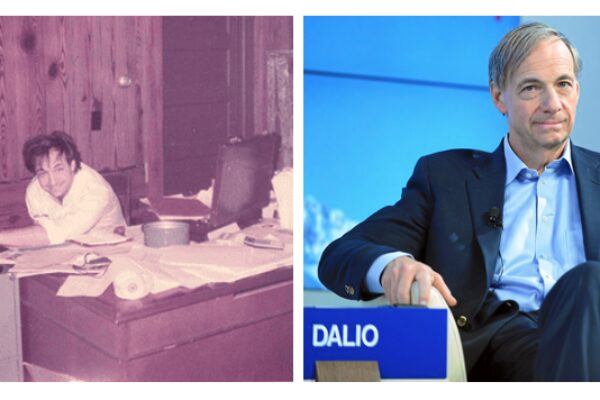
Most thinking about business draws lessons from extreme cases.
When we draw lessons about rapid scaling from Uber, customer service from Zappos or brand marketing from Nike, we’re looking out at the far edge of the relevant phenomena and extrapolating back from those extremes to the more ordinary conditions most companies face. This can be a powerful way to learn. These extreme examples demonstrate vividly what’s possible, and help untether us from assumptions that constrain our thinking.
At the same time, as we seek to understand these companies as wholes, it is important to remember that every aspect of how they operate is shaped by, and helps to support, their extreme qualities. To make sense of Google’s “way of life,” one needs to look through the lens of culture and operations flourishing in conditions of superabundance, with products and capabilities positioned to take advantage of perhaps the largest secular shift in the history of marketing, the movement of dollars to where they can be targeted to greatest effect. That doesn’t mean one can’t take elements out of this context – for instance, Google’s commitment to setting stretch goals sufficiently ambitious that only 60-70% of the objectives are consistently achieved – and apply them in unlike circumstances. But in doing so one should understand the conditions in which these practices arise, and reflect on where translation could falter.
In reflecting on this question of learning from extremes, I revisited a passage near the beginning of Russian neuropsychologist Alexander Luria’s extraordinary 1968 book, The Mind of a Mnemonist. It is a book-length study of the mind of a man whose memory operated at the far extremes of human possibility: essentially everything that “S” perceives he could then recall, in full detail, without the normal process of blurring and decay that the rest of us experience. Luria describes how an extreme quality such as S’s memory must be understood not as an isolated element but as a syndrome, interlinked with the other elements of his functioning and his inner life. The book, for instance, explores the interrelationship between S’s memory, his experience of synesthesia and his diminished capacity for abstract thought.
The paragraphs below from Luria guide us beautifully on how we might learn from extremes: how we can escape the limits of what we can see when staring at what’s typical, without oversimplifying the lessons that can be grasped at the frontier. His meditation on syndromes is as relevant to how we can understand groups, organizations, movements and nations as it is relevant to the understanding of individual minds.
Unlike other psychologists who have done research on people with an exceptional gift for memory, the author did not confine himself to measuring the capacity and stability of the subject’s memory, or to describing the devices used by the latter to recall and reproduce material. He was far more interested in studying certain other issues: What effect does a remarkable capacity for memory have on other major aspects of personality, on his behavior and personality development? What changes occur in a person’s inner world, in his relationships with others, in his very life style when one element of his psychic makeup, his memory, develops to such an uncommon degree that it begins to alter every other aspect of his activity?
Such an approach to the study of psychic phenomena is hardly typical of scientific psychology, which deals for the most part with sensation and perception, attention and memory, thinking and emotion, but only rarely considers how the entire structure of an individual’s personality may hinge on the development of one of these features of psychic activity.
Nonetheless, this approach has been in use for some time. It is the accepted method in clinical medicine, where the thoughtful physician is never interested merely in the course of a disease he happens to be studying at the moment, but tries to determine what effect a disturbance of one particular process has on other organic processes; how changes in the latter (which ultimately have one root cause) alter the activity of the entire organism, thus giving rise to the total picture of disease, to what medicine commonly terms a syndrome.
The study of syndromes, however, need not be restricted to clinical medicine. By the same token, one can analyze how an unusually developed feature of psychic makeup produces changes, which are causally related to it, in the entire structure of psychic life, in the total personality. In the latter instance, too, we would be dealing with “syndromes” having one causal factor, except that these would be psychological rather than clinical syndromes.
It is precisely with the emergence of such a syndrome, one produced by an exceptional memory, that this book is concerned. The author hopes that by reading it psychologists may be prompted to investigate and describe other psychological syndromes: the distinct personality features which emerge when there is heightened development of an individual’s sensitivity or imagination, his power of observation or capacity for abstract thought, or the will power he exerts in the pursuit of a particular idea.
What might we learn from organizations pushing the boundaries of what’s possible if we’re curious enough to look beyond their defining features to the larger whole of how they operate? Luria’s “S” didn’t choose his way of life. His “syndrome” was the gift and the curse of how his brain was wired. Entrepreneurs can create companies that reimagine not only products but fundamental aspects of how a company can work. While such creativity is rare, it is deeply significant as a force for human progress, a tool for others to see new possibilities for how to work, how to build and how to live.



